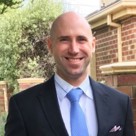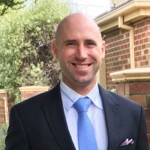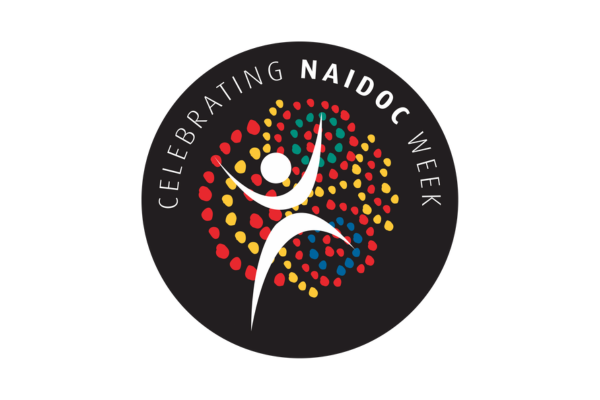
Providing care to remote Indigenous communities
23 Jul 2021
Day in the life
- Aboriginal and Torres Strait Islander
- Rural
Ever wondered what it's like to be a psychiatrist? This series explores a day in the life of psychiatrists who work in different areas of psychiatry.
In this article, we hear from Dr Daniel Wood who is rural psychiatrist working in East Arnhem Land.
Please be aware that this website and associated resources may contain the names or images of Aboriginal and/or Torres Strait Islander peoples who are now deceased.
Remote, fly-in fly-out work
The sun‘s not up yet and it’s already hot. It’ll climb another 10 degrees by the middle of the day so I’m dressed appropriately – running shoes, shorts, short-sleeve shirt, with liberal sunscreen already applied. I’m set to fly to one of Australia’s most remote locations in the North West of the Gulf of Carpentaria.
We‘re flying to a remote Indigenous community. Our team works within an integrated model, managing inpatients at the Royal Darwin Hospital, and providing Outreach Clinics for community follow up. The two to three day Outreach Clinics are what drew me to this job, having previously left an inner-city Sydney Hospital.
I meet the team’s excited psychiatry registrar at the small charter plane terminal in Darwin and we check in. It’s an informal process. While waiting to board, we spend time swapping stories with the cardiology team that is sharing the small plane.
The plane will hold the two medical teams and a couple of patients returning home from Darwin Hospital. Smiling patients are laden with shopping bags and McDonald‘s for their family back home.
My pleasant commute to work
The pilot leads us out to the plane, asking who wants to sit up the front with him. He asks if anyone minds us flying with the fuel light on. We hope he is joking. Having met many of these charismatic pilots now, I’m pretty sure he is.
It’s a tough decision as to which side of the plane to sit on. Flying from Darwin means the view on the left side is of the beautiful coastline. On the right side is the matrix of rivers, shrunken in anticipation of the upcoming next wet season.
Arriving on the remote island we are met by the local mental health team and a dusty 4WD. Red dust is in and on everything.
It’s nice to see the local team, but even nicer to see the faces of little children waiting impatiently behind the small fence. Eager to share the large bag of cold hamburgers that has been brought back for them, their eyes are glued to the bag with smiles from ear to ear.
A short 100m drive arrives us at the clinic.
The Outreach Clinic
The heat is building. The air-conditioning in the clinic welcomes us as do the staff and we are given a handover for the day ahead. We triage the most unwell patients and formulate a plan.
The local Indigenous health worker sets out in the 4WD to look for patients and transport them to the clinic. Set appointment times are an impossibility.
We will see patients ranging from those who already receive assertive follow up by the NGO in the community, to new patients who may be in town having made their way from an even more remote outstation. Common patient diagnoses include schizophrenia, substance-induced psychotic disorder, bipolar affective disorder and less commonly, personality disorders.
Providing culturally sensitive care
Patients may have little English, but speak fluently in multiple other Indigenous languages. Medical reviews are ideally performed with a family member of the same sex for cultural sensitivity.
We are fortunate to also work with a respected Elder in the community (who consented to the publication of this article and photo). Elders and local health workers help as interpreters and provide a wealth of knowledge about everything ranging from family and social histories to observations about illness prodromal periods. The local Elder and health worker works with the team to delineate culturally appropriate experiences from those representing mental illness.
A few years into the job and I’m still fascinated to learn about black magic, totem systems, men’s and women’s business, the positive impact of ancestors, song lines, culturally appropriate perceptual disturbances. Like all societies, there are fascinating culture-bound syndromes. The work wouldn’t be possible without the help of the passionate and knowledgeable local staff. Our very diverse team (from Darwin as well as local) encourage a combination of western medicine and traditional healing.
Out in the community
As the day progresses, the local team highlight a number of clients who prefer to avoid the clinic and the cold air conditioning. On their advice we set out in the 4WD for home visits.
Friendly greetings, including unique non-verbal communication, meet us and wave us onto their properties. After double checking there are no ‘cheeky dogs’ that might nip our heels, we head into the houses. The extended families are often interested by the visitors and we all sit under a tree together discussing a family member’s progress and/or challenges.
As the work day draws to a close we head back to the demountable accommodation and look forward to doing it all again tomorrow. But maybe there is time to take up today‘s offer from a local man to catch a couple of barramundi first.

Become a Psychiatry Interest Forum (PIF) member to gain access to information and events to learn more about psychiatry.
About the author

Dr Daniel Wood
Dr Daniel Wood is a consultant psychiatrist working at the Royal Darwin Hospital. Qualifications include FRANZCP, MBBS, BSc (HonsClass1), BBsMn. He works as the East Arnhem Land Rural Psychiatrist. He is the NT Chair for the RANZCP Section of Rural Psychiatry. Dr Wood is privileged to work predominantly with the Indigenous population from East Arnhem Land and the Katherine region. Language, culture and geographical distances are just some of the exciting challenges that his multidisciplinary team work to understand or overcome.
Dr Daniel Wood is a consultant psychiatrist working at the Royal Darwin Hospital. Qualifications include FRANZCP, MBBS, BSc (HonsClass1), BBsMn. He works as the East Arnhem Land Rural Psychiatrist. He is the NT Chair for the RANZCP Section of Rural Psychiatry. Dr Wood is privileged to work predominantly with the Indigenous population from East Arnhem Land and the Katherine region. Language, culture and geographical distances are just some of the exciting challenges that his multidisciplinary team work to understand or overcome.
More news & views
As of 20 September, 28 of this year’s deliverables have been completed, and the mandatory annual rep...
 07 July 2025
07 July 2025
This year’s National NAIDOC Week from 6–13 July marks a powerful milestone: 50 years of honouring an...
Qualified privilege covering Australian Peer Review Groups has momentarily expired. An application f...